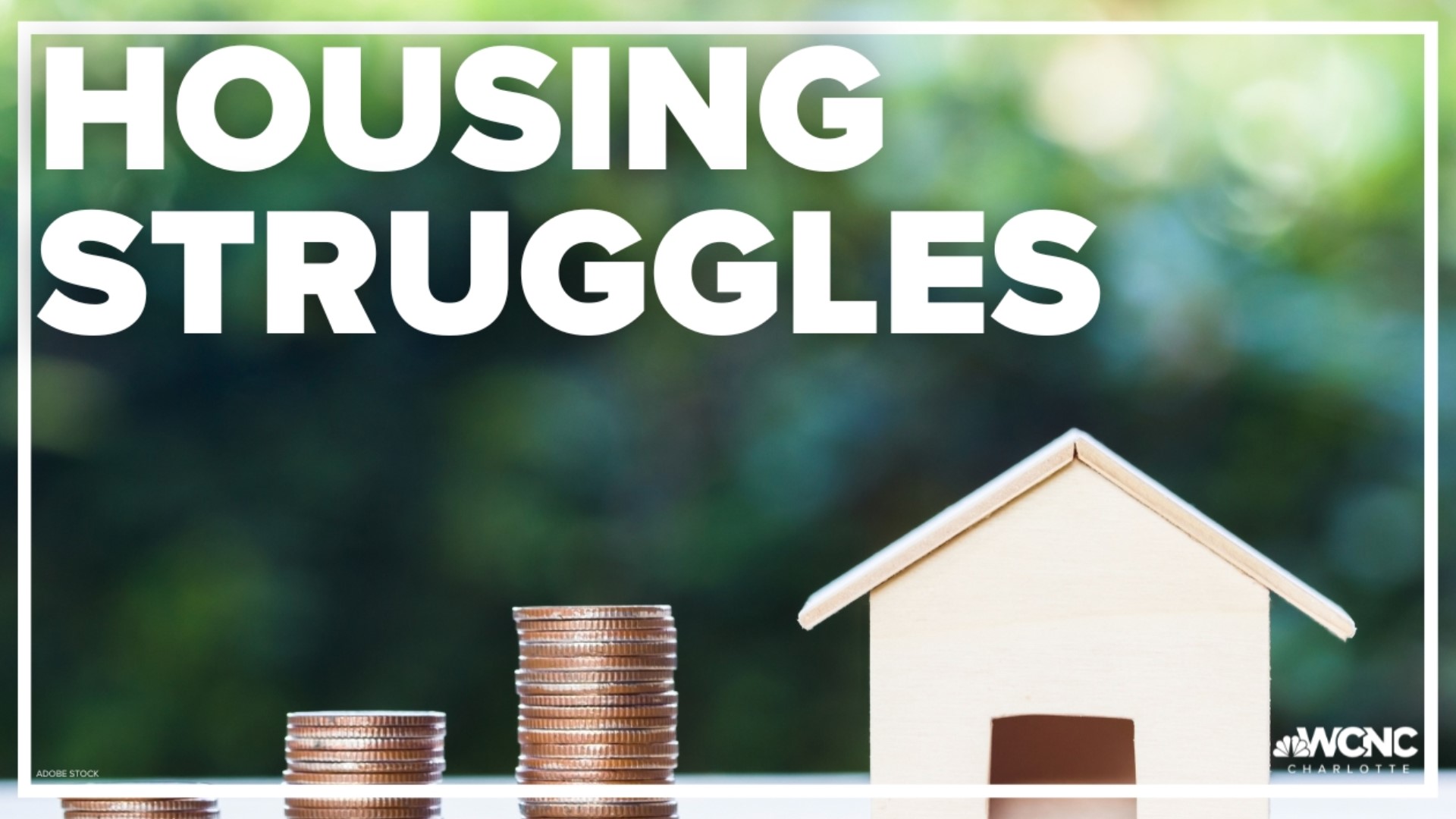CHARLOTTE, N.C. — It’s been over a year and a half since we’ve seen dozens of tents on the streets near Uptown Charlotte. The encampment, located near Charlotte's North End and once known as "Tent City," was filled with hundreds of people.
Now some of those former "Tent City" residents, some of whom found housing elsewhere, could find themselves homeless once again.
In February 2021, Mecklenburg County leaders issued an abatement order for the “Tent City" site, which ordered people to leave the area within three days. Officials blamed the order on health risks from a rat infestation.
At the time, the county used FEMA money to temporarily house some residents. That money only provided housing until the end of September 2021.
Of the former "Tent City" residents, 90 people remain unsheltered, in a temporary shelter, or on the streets, according to Mecklenburg County; 87 people have gone into permanent housing while eight are in transitional housing.
Living among the debris and rat infestation for over a year was Charles Mcllwaine.
“Feeling less than [human] hoping nobody would see me [and my] dirty clothes," McIlwaine said.
Once living in inhumane conditions, now McIlwaine has a roof over his head.
“Big cinder blocks lifted off of me… my peace zone is what I call it. I’m very grateful," McIlwaine said.
The Housing Collaborative helped house about 60 people from the encampment, including Mcllwaine.
“We began to recruit landlords,” Harry Mack, the director of housing partnership for the Housing Collaborative, said.
The nonprofit offers financial incentives and assistance to landlords. They help pay application fees, security deposits, and rental assistance with the goal of helping people who are trying to start over.
“We overcome barriers when they have challenging backgrounds and we kind of push past that because we have conversations about giving people another opportunity," Mack said.
But an opportunity to avoid homelessness could be at-risk for some of the folks who once lived in "Tent City."
Mack said while they've helped house dozen of people from the encampment, some of the housing leases are expiring and need to be renewed.
“We really need the property providers, the landlords, to come on board,” Mack said.
And as new apartment buildings are built across Charlotte, he says all it takes is just one landlord offering one unit to someone who needs it.
“If each one of those landlords say, 'I just want to give you one (unit),' then we could house a number of people, and take those people who need rehousing from the encampment [and] put them into housing and continue to work with them so they become self-sufficient," Mack said.
If you are a landlord and would like to help, you can email info@housingcollab.org or Harry Mack at hmack@housingcollab.org.
Contact Lexi Wilson at lwilson@wcnc.com and follow her on Facebook, Twitter, and Instagram.
WCNC Charlotte is part of seven major media companies and other local institutions producing I Can’t Afford to Live Here, a collaborative reporting project focused on solutions to the affordable housing crisis in Charlotte. It is a project of the Charlotte Journalism Collaborative, which is supported by the Local Media Project, an initiative launched by the Solutions Journalism Network with support from the Knight Foundation to strengthen and reinvigorate local media ecosystems. See all of our reporting at charlottejournalism.org.

